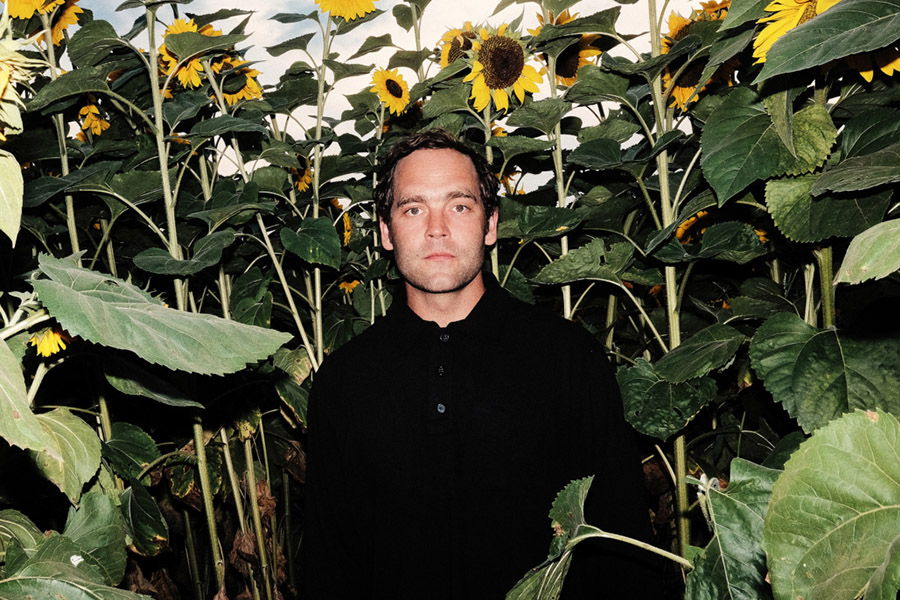To be any sort of creative person and to share your innermost thoughts with the world takes a lot of guts. You open yourself up, immediately, to criticism and commentary. To avoid this, or rather, to provide some buffer from this, some choose to adopt a pseudonym or publish anonymously. For musicians, their band often has far more name recognition than they do. But for Axel Bosse, there is no escaping. As of 2021, the singer-songwriter has released eight albums under the moniker Bosse. Of course, he has a talented band backing him up, to perhaps shoulder some of the “burdens.” But, in a way, he is still solo.
This month, let’s get to know the pop rocker Bosse and learn German with music!
Get To Know The Band
In the music world, Axel Bosse is perhaps better known by his professional name: Bosse. Born on February 22, 1980, in Braunschweig, Germany, he left school before completing his Abitur, the secondary school qualification.
But it was clear even at an early age that pursuing music was always going to be his path. By his late teens, the young musician had already signed his first record contract. The major label Sony signed Hyperchild, of which he was a member. The band, whose music was in the English language, released a single album in 2002 before parting ways.
When the band split, he went solo and never looked back. And he did not waste much time, either!
Get to Know the Music of Bosse
The debut album from the band is 2004’s Kamikazeherz, a largely bouncy and upbeat rock effort. Seemingly unwilling to edit anything out, the album runs nearly an hour with 16 tracks, including the thrashy opener “Keine Panik” and the floating ballad of a title track.
The following year, Guten Morgen Spinner followed. But where its predecessor was bold and brash, the second album hits a little differently. It starts off carefully and tightly wound up. But by halfway through the album, Bosse is seemingly on a rampage of sorts. The brightness is gone, instead replaced with a certain threat of darkness. The title track is a power ballad enveloped in a storm of noisy instrumentation. There are, of course, moments of reflection. “Irgendwo unterm Staub” starts with simple guitar and vocals before building to a full wall of sound; “Frankfurt Oder” is more of a traditional ballad, complete with some added brass.
Bosse seemingly silences the demons with Taxi, his third album from 2009. The album is more focused on careful pop ballads that never get too loud or aggressive. Strings swell behind a fingerpicked guitar melody on “Gegen Murphy.” Madsen‘s Sebastian Madsen makes a guest appearance on the slow building piano track “Vereinfachen.” Even when there is a bit of edge or excitement, such as on “Alter Strand” or “Tanz mit mir,” it takes a pop route with a toe-tapping rhythm.
With 2011’s Wartesaal, the bright and bold band of yesterday returns. This time around, he is not afraid of a melodic ballad or a little edginess. And it is a smooth transition between the two. But do not take my word for it. The album earned the ninth spot on the charts. The title track kicks things off with a bit of that aforementioned attitude. On “Nach Haus,” fingerpicking guitar drives the melody of the swirling ballad.
“Schönste Zeit,” the first single from 2013’s Kraniche pulls listeners in and sets the tone for the entire album. It has an intimacy and a likable melody that just draws you in and simply does not let go. The bouncy and upbeat “So oder so” was so popular that it won the Bundesvision Song Contest the year it was released. The album ended up being a winning combination, placing fourth on the German album charts and going gold.
The band’s first number one album came with his sixth album, 2016’s Engtanz. By this point, the sound has been finetuned and is sophisticated. It is full of big, unapologetic soaring sounds, like “Dein Hurra.” Elsewhere, strings sing out behind the full band on “Steine.” But there are still exciting curveballs with tracks like “Krumme Symphonie,” a rapid and rhythmic track with some edge that still incorporates a building melody.
The band retook their place at the top of the charts with 2018’s Alles ist jetzt. It also continued the group’s habit of putting the title track in the opening spot. And this time around it is an infectious and rhythmic track with some edge — and also a bit of mystery — that you can dance to. On this album, he definitely leans into the dance aspect. “Augen zu Musik an” is rich in synths. But “Ich bereue nichts” delivers the long-awaited piano ballad.
For 2021’s Sunnyside, Bosse seems to be all over, stylistically, and longing for modernity. Bold horns pull listeners in on “Der letzte Tanz” while “Nebensaison,” despite of its busy synths, reminds of the band’s earlier “noisier” sound. Strong percussion drives “Vater” while the echoing title track creeps up on you.
Looking for another Ohrwurm to help you learn German? Check out previously featured musicians and bands!
Photo is by Stefan Mueckner, courtesy of SCOOP Music. This post contains affiliate links.
